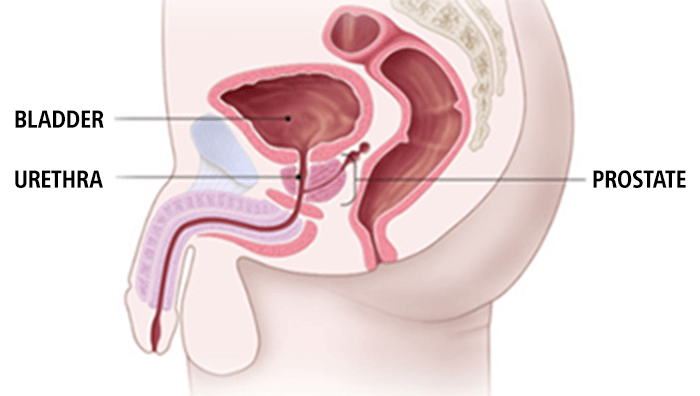Health Essentials
Demystifying nausea
Nausea is a very common complaint and almost everyone experiences this sometime in their life. It is an experience that occurs with the feeling that you are about to vomit. When you are nauseated you may feel weak, sweaty and have too much saliva in your mouth.
You may even vomit. Pregnancy, illness and motion sickness are among the long list of conditions that may cause nausea.
Over the past 48 hours I have had at least six people complain about nausea to me, and I feel that is a signal that we re-visit this common complaint.
Nausea and vomiting are usually completely normal reactions but may also signal an underlying serious condition.
They are often your body’s response to foreign substances or irritants. Your brain may signal the urge to vomit if you eat contaminated food or contract a stomach virus.
Common causes of nausea
Nausea is often associated with distaste for food or an urge to vomit. People with nausea may also feel the urge to retch. This occurs when your chest and abdominal muscles contract without your control.
Some of the common conditions that may present with nausea (with or without vomiting) include:
1. Abdominal causes
a. Gastroenteritis – may be caused by a viral or bacterial infection
b. Peptic ulcers
c. Food poisoning or food allergies
d. Overeating
e. Liver disease
2. Medication
a. Several medicines may cause this. Antibiotics are a common culprit and so are drugs used in the management of cancer.
3. Problems with the head and neck
a. Migraine headaches or motion sickness.
b. Stroke
c. Head injury
d. Infection in and around the brain or brain tumour
e. Diseases of the ear
4. Hormonal changes
a. Including those that lead to morning sickness during pregnancy
5. Toxins in the blood
a. Such as alcohol and nicotine
6. Other conditions
a. Diabetes
b. Appendicitis
c. Urinary tract infection, intestinal obstruction
7. When to seek emergency care
Quite often nausea will not require urgent medical attention. The problems are usually short-lived, lasting just a few minutes to several hours and subsiding on its own within 24 hours. Seek immediate attention if you have any of the following:
1. Vomiting that is blood or bile stained
2. Fever greater than 38 degrees Celsius
3. Severe abdominal pain
4. Headache and a stiff neck
5. Vomiting for more than 24 hours
6. Signs of dehydration, including increased thirst, dry mouth or infrequent urination.
Tips to make recovery brisk and smooth
• Take small amounts of clear liquids such as water or flat ginger drinks
• Avoid caffeinated beverages such as cola, coffee and tea
• Eat small meals every few hours. This helps your stomach digest food gradually
• Avoid odours such as tobacco, perfumes or strong cooking smells
• Bland foods that can absorb stomach acids are preferred and these include rice, crackers and unbuttered bread.
Dear reader, next time you experience that uncomfortable feeling in the chest, stomach or back of the throat, remember that it may stop as suddenly as it started but never ignore it if it is associated with major warning signs.
AS ALWAYS LAUGH OFTEN, ENSURE HYGIENE, WALK AND PRAY EVERYDAY AND REMEMBER IT’S A PRICELESS GIFT TO KNOW YOUR NUMBERS (blood sugar, blood pressure, blood cholesterol, BMI)
Dr. Kojo Cobba Essel
Health Essentials Ltd (HE&W Group)
(dressel@healthessentialsgh. com)
*Dr. Essel is a Medical Doctor with a keen interest in Lifestyle Medicine, He holds an MBA and is an ISSA Specialist in Exercise Therapy, Fitness Nutrition and Corrective Exercise. He is the author of the award-winning book, ‘Unravelling The Essentials of Health & Wealth.’
Thought for the week – “The next big thing in Healthcare in Ghana is the Medics Clinic. Send me an email at dressel@healthessentialsgh. com for more information.”
References:
1. www.webmd.com
2. Health Ink Communications
By Dr. Kojo Cobba Essel
Health Essentials
The Prostate Has Found Its Voice

The prostate gland, a small but essential organ found only in men, plays a key role in reproductive health. It produces fluid that nourishes, protects, and transports sperm, yet many focus only on its connection to prostate cancer.
Location & Function
- Situated between the bladder and penis, with the rectum behind it.
- The urethra passes through the prostate, carrying urine and semen.
Common Prostate Conditions
1. Prostatitis – Infection of the prostate:
- Symptoms: chills, fever, pus-like urethral discharge, painful urination, groin/testicular pain, painful orgasms, erectile dysfunction.
- Advice: Seek professional help; do not self-medicate.
2. Benign Prostatic Hyperplasia (BPH) – Non-cancerous enlargement of the prostate:
- Symptoms: frequent urination (especially at night), urge incontinence, difficulty starting urination, weak stream, painful urination, blood in urine, terminal dribbling, and in severe cases, inability to urinate.
- BPH can be extremely painful, sometimes compared to labor pains.
3. Prostate Cancer – Common among men, especially black men, often aggressive and with earlier onset:
- Risk Factors: older age, African descent, family history, obesity.
- Symptoms: frequent urination, straining, blood in urine/semen, weak urine flow, new erectile dysfunction; advanced stages may include fatigue, weight loss, and bone pain.
Diagnosis
- Digital rectal examination – checks for irregular or hard areas.
- PSA test, biopsy, ultrasound, CT/MRI/PET scans, bone scan.
Management
- Holistic approaches include watchful waiting, medication, surgery, and radiation (external & brachytherapy).
- Always discuss all options with your healthcare provider.
Risk Reduction Tips
- Regular screening
- Healthy, varied diet rich in fruits and vegetables (carrots, tomatoes, broccoli, kale, cauliflower)
- Maintain a healthy weight
- Exercise at least 5 days a week
Final Advice
- Share this information – the prostate needs support!
- Maintain good hygiene, walk and exercise daily, pray, and know your numbers (blood sugar, blood pressure, cholesterol, BMI).
Thought for the Week:
“There is no magic formula to being happy but making a conscious effort to be happy goes a long way.” – Dr. Kojo Cobba Essel
Dr. Essel invites readers to the La Palm Royal Beach Hotel Wellness Festival on Saturday, November 29, 2025, at 6 a.m., to walk, exercise, network, and share ideas to stay healthy.
Contact: dressel@healthessentialsgh.com
By Dr. Kojo Cobba Essel
Join our WhatsApp Channel now!
https://whatsapp.com/channel/0029VbBElzjInlqHhl1aTU27
Health Essentials
Stop the silent killer: Breaking myths to prevent sudden deaths from high blood pressure

Every week in Ghana, a life is cut short, sometimes in the middle of traffic, sometimes at a desk, sometimes in the quiet of sleep. A father doesn’t come home. A sister doesn’t wake up.
A colleague slumps at work and never gets back up. Families are left asking why and you will hear statements like what happened? Was he sick? I just saw him, he has not shown signs of ailment, what a shock and so on.
Behind many of these sudden tragedies is a quiet, invisible force: high blood pressure, or hypertension. It doesn’t scream for attention. It doesn’t always show symptoms. But it tightens its grip silently on hearts, on brains, on lives.
This is not just a medical issue. It is a human one, it is about behaviour, it is about ignorance and it is about lifestyle. It is the grandmother who never got her blood pressure checked because she felt “fine.”
It is the taxi driver, the statistician, the nurse who ignored his pounding headaches, thinking it was just stress. It is the young lady who was so vibrant at church and no one suspected she could fall and die. Because it shows no symptoms.
The alarming numbers we cannot ignore
The Ghana’s 2023 STEPS Survey on Non-Communicable Diseases conducted by The World Health Organisation, Ghana Health Service and Ghana Statistical Service has revealed findings that should push for action.
According to the report, 21.7 per cent of adults aged 18 to 69 in Ghana are living with high blood pressure. Even more alarming is that 51.1 per cent of those with hypertension are not aware of their condition.
This means that more than half of the people with dangerously high blood pressure are walking around without knowing it until tragedy strikes. That is the real danger of this silent killer.
Literature has shown that hypertension is preventable and manageable. But only if we treat it like the threat, it is. That means regular checkups; that means understanding the risks and that means talking about it openly, urgently, and with compassion.
The deadly power of myths
Why are so many Ghanaians untested or untreated? Is it out of ignorance, or the pervasive myths about hypertension and its treatment?
• Some believe blood pressure medicine “weakens the body” or “shortens life.”
• Some believe blood pressure medicine “weakens the penis and kills sexual drive”
• Others think once you start taking medication, you are “dependent for life.”
• Many say, “I feel fine, so I must be fine.”
These beliefs are not only false, but they are also deadly. The truth, according to the World Health Organisation, is that effective treatment can reduce the risk of stroke by up to 40 per cent and heart attack by 25 per cent. Avoiding treatment does not prevent dependence rather, it accelerates death.
As Dr Patrick Kuma-Aboagye, former Director-General of the Ghana Health Service, has noted, “Hypertension is preventable and treatable, but our biggest battle is misinformation and late detection.”
A national conversation we must have
This is not just a health issue it is a national emergency. Sudden deaths rob families of breadwinners, communities of leaders, and the country of its productivity. In every obituary notice caused by hypertension, there is a story of loss that could have been prevented with a simple blood pressure check and treatment.
Behind every life saved is a moment of awareness, a decision to act, therefore, the media must rise to the challenge.
Radio and television programmes should dedicate regular airtime to demystify hypertension. Newspapers should carry survivor stories, expert interviews, and practical lifestyle advice.
Social media influencers should spread awareness in local languages, reaching young people who assume they are safe.
Public health experts also have a responsibility. Screening must move beyond hospitals into churches, mosques, markets, schools, and workplaces. People should not have to wait for illness to know their BP status.
What we can do together
To stop the silent killer, we need a collective response:
• Check your blood pressure regularly, even if you feel healthy.
• Follow medical advice faithfully if diagnosed because treatment saves lives.
• For healthy lifestyle, eat less salt, reduce alcohol, reduce starchy, fat and oil intake, avoid smoking, and exercise at least 30 minutes daily.
• Encourage one another talk about blood pressure in families, communities, and workplaces.
Conclusion: Silence is killing us
What kills is not just the disease, but the silence, fear, and myths that surround it. The STEPS 2023 report has sounded the alarm: nearly one in five Ghanaian adults has high blood pressure, and more than half don’t even know it.
This is the time for bold conversation, public education, and decisive action. The media, health professionals, policymakers, and ordinary citizens must join forces to expose the myths, spread the facts, and save lives. Let us not wait for another headline.
Let us make blood pressure a national conversation before it becomes a personal tragedy. With awareness, treatment, and collective will, Ghana can stop the silence and stop the sudden deaths from the silent killer.
Written by: Ansah Moses Teye-Akam – Senior Statistician, Sociologist/Scientific Research Organisational Expert.
Email: moses.ansah@ statsghana.gov.gh/ansahmosesteyeakam@ gmail.com.gh Contact: 0244539034 / 0204359034
Join our WhatsApp Channel now!
https://whatsapp.com/channel/0029VbBElzjInlqHhl1aTU27






